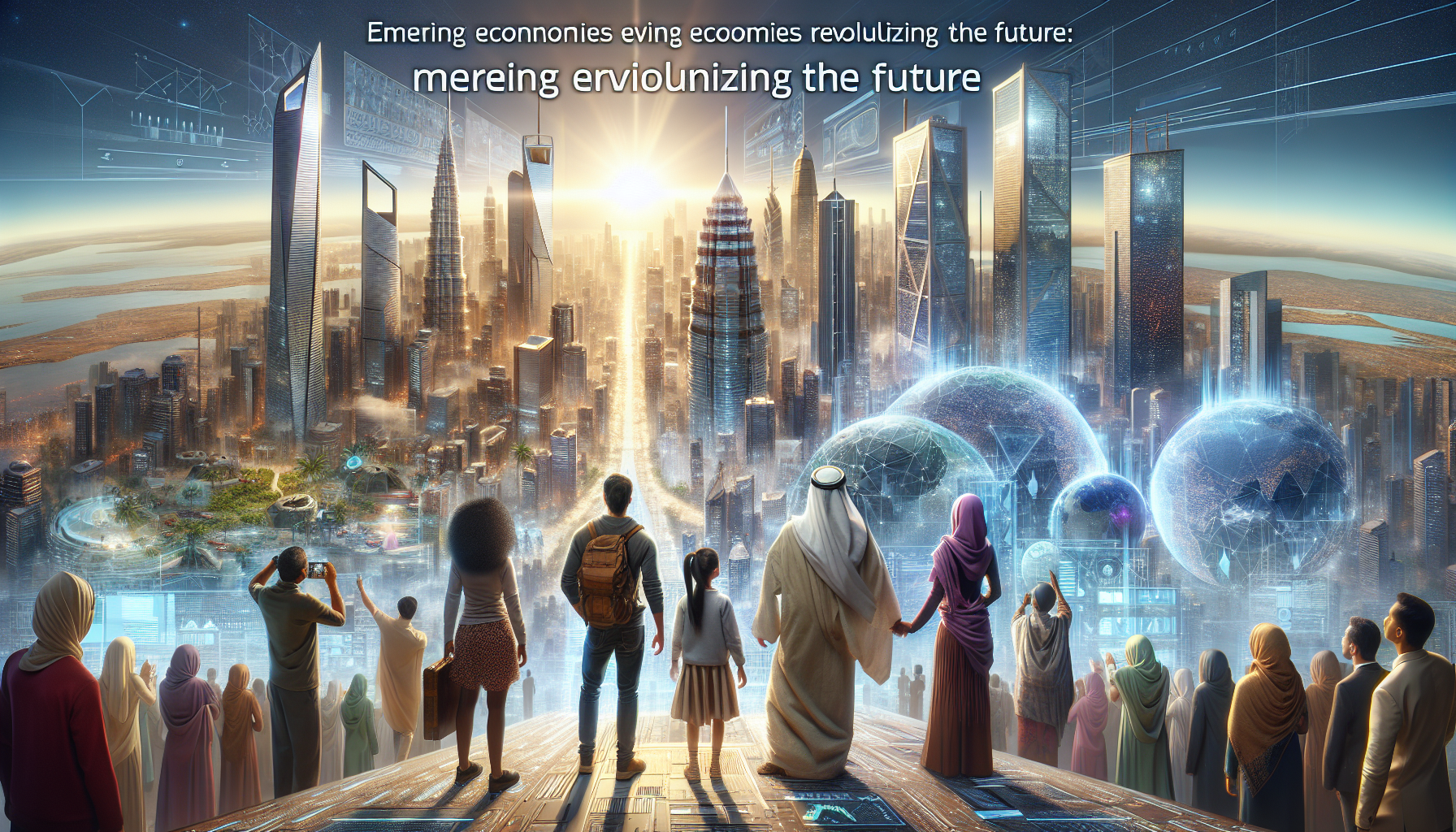Advertisements
Discover now the emerging economies that are changing the world scenario and revolutionizing the future. In this content, we will explore countries that are standing out in the global economic scenario and that have the potential to positively impact various sectors. Follow us on this journey of discovery and learn more about the opportunities and challenges that these promising economies offer.
When exploring the emerging economies scenario, it is possible to perceive the potential for growth and innovation that these countries present. With solid economic policies and strategic investments, they are standing out and becoming a reference in several areas. Follow us on the trends and opportunities that these economies are providing, and learn how they are positively impacting the global market.
Get ready to explore a new horizon of possibilities and be amazed by the potential of emerging economies. Be aware of the transformations and trends that are shaping the future and learn how to benefit from these opportunities. The economic revolution is happening now, and it is important to be up to date and prepared to make the most of this moment of change and growth.
Emerging Economies: The Future of the Global Economic Revolution
The role of emerging economies on the global stage
Emerging economies have played an increasingly important role in the global economic scenario, transforming the way the world does business. Countries such as China, India, Brazil and Russia have stood out not only for their accelerated economic growth, but also for their capacity for innovation and adaptation to new technologies. These countries are becoming true engines of growth and development, challenging traditional and consolidated economies.
The main emerging economies and their impacts
1. China: With its ever-expanding economy, China has become a global power in a variety of sectors, including technology, manufacturing, and foreign trade. Its gigantic consumer market has attracted investors from all over the world.
Advertisements
2. India: Known as the “cradle of entrepreneurship”, India has stood out for its information technology and services industry, being home to several innovative startups.
3. Brazil: Despite the economic challenges faced in recent years, Brazil remains an agricultural powerhouse and an important player in the commodities market.
4. Russia: With its vast reserves of natural resources, Russia has the potential to become an energy powerhouse and an important source of raw materials.
The future of emerging economies
The rapid growth of emerging economies has led to a redistribution of global economic power, challenging traditional power structures. With innovation and the adoption of new technologies as growth engines, these countries are positioning themselves to lead the next global economic revolution. The promising future of emerging economies promises to impact not only the economic landscape, but also the social and political landscape on a global scale.
- China: leader in technology and foreign trade
- India: hub of entrepreneurship and innovation
- Brazil: agricultural and commodities powerhouse
- Russia: energy and raw materials potential

The rise of emerging economies is creating a new landscape of opportunities for global businesses, as these countries offer growing markets and an environment conducive to innovation. The integration of these economies into the global market boosts cultural and technological exchange, fostering the development of innovative solutions that can benefit not only local but also global markets. China, for example, with its vast capabilities in manufacturing and technological innovation, continues to attract significant investment, while also positioning itself as a leader in artificial intelligence and 5G technology. India, with its vibrant startup ecosystem and young tech-savvy population, is quickly becoming a hub for technology companies and digital services. Brazil, with its abundance of natural resources and a robust agricultural sector, continues to play a crucial role in supplying the world with food and commodities. Russia, with its rich reserves of natural resources, is strengthening its position as a key player in the global energy market.
Advertisements
Conclusion
In conclusion, emerging economies are playing a key role in transforming the global economic landscape, challenging traditional power structures and driving innovation and development. Countries such as China, India, Brazil and Russia are standing out not only for their accelerated economic growth, but also for their ability to adapt to new technologies and become true engines of growth. With China leading in technology and foreign trade, India being a hub of entrepreneurship and innovation, Brazil maintaining its position as an agricultural and commodities powerhouse, and Russia with its energy and raw materials potential, these emerging economies are shaping the future of the global economic revolution.
As these emerging economies continue to grow and develop, we can expect a redistribution of global economic power and significant impacts on the social and political landscape on a global scale. With the adoption of new technologies and the constant pursuit of innovation, emerging economies are positioning themselves to lead the next phase of global economic evolution. Therefore, it is crucial that companies and investors pay attention to these emerging economies and seek opportunities for collaboration and investment to ensure their own growth and success in the global marketplace.
Therefore, as these emerging economies continue to consolidate and expand, it is imperative that global governments and businesses adopt a collaborative and strategic approach to exploit the opportunities that arise. Implementing favorable trade policies, technology cooperation agreements, and infrastructure investments are essential steps to facilitate this growth. Furthermore, investing in the education and skills of the workforce in these countries can ensure that economic growth is sustainable and inclusive. It is crucial that global companies recognize the potential of these emerging economies and seek partnerships that foster joint development. Technological innovation, especially in sectors such as renewable energy, biotechnology, and artificial intelligence, can serve as a catalyst for robust and sustainable economic growth. Adopting sustainable and responsible business practices is also key to ensuring that the economic development of these countries does not come at the expense of the environment or social equity. Ultimately, the success of emerging economies not only benefits the countries in question, but also contributes to the stability and growth of the global market as a whole. In this way, by aligning with the growth and innovation trends of these economies, global companies and investors can ensure a competitive and resilient position in the constantly evolving global economic scenario.




